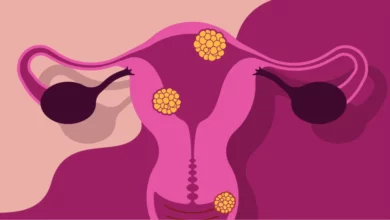7 Signs Your Vagina Is Depressed (No, Really)
“Every day I have to keep a vagina journal,” she explains.
“A “Dear Vagina, why so blue?” kind of journal?” Miranda mocks.
But despite its comical depiction in the show, vulvodynia is no laughing matter.
Charlotte’s depressed vagina brought some much needed attention to a serious health condition that affects roughly 16 percent of women, mostly between the ages of 18 and 25, though more mature women aren’t immune.
Though it’s far less well known, vulvodynia is more common than endometriosis and breast cancer. Its biggest PR problem? Up until recent decades, the condition was largely regarded as a problem that only existed in a woman’s mind.
“Women have gone to the doctor with symptoms, the doctor has found the vulva looks quite normal, and women have been labeled as psychologically disturbed,” says Vulva Disorders Unit at the Royal Women’s Hospital in Melbourne director, Dr Ross Pagano.
Even today, it’s extremely difficult to diagnose vulvodynia. There’s no specific test — the only reliable means of determining its existence is to rule out alternative conditions like thrush or eczema. It’s a process of elimination not all doctors are as familiar with, which is why the average sufferer visits as many as seven different doctors before she gets the correct diagnosis.
The consequences ofvulvodynia can be devastating; physically, mentally and emotionally. Its a health issue that has far-reaching and profound effects on everything from a woman’s intimate relationships to her career and self-esteem; so it’s time to talk about it and have a serious look at the signs and symptoms…
1. It itches.
open next page to continue reading….




